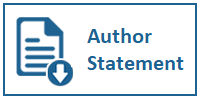DIGITAL TRANSFORMATION, SUSTAINABILITY, AND MSME PERFORMANCE: THE ROLE OF ORGANIZATIONAL AGILITY
DOI:
https://doi.org/10.31937/manajemen.v16i2.3911Abstract
Abstract- Micro, small, and medium-sized businesses (MSMBs) in the modern digital age are under increasing pressure to innovate and adapt to the ever-shifting demands of consumers. Keeping up with the competition and remaining relevant in the market now requires digital transformation for MSMEs. This study's overarching goal is to learn how digital transformation has affected the efficiency and productivity of micro, small, and medium-sized enterprises (MSMEs) in Central Java, and how sustainability practices have played a key role in their meteoric rise to the top. Sales growth, market reach, and customer happiness are some of the main performance factors that this study aims to understand through the application of digital tools and sustainable practices. In this study, quantitative research methods were employed. The total sample is 221 respondents. Purposive random sampling is the method used for sampling. Analysis of variance in this research makes use of SEM-PLS, or Structural Equation Modeling with Partial Least Squares. According to the findings, digital transformation has a beneficial impact on the performance and agility of micro, small, and medium-sized enterprises (MSME), and business sustainability also directly affects these metrics. Mediating the relationship between corporate sustainability and MSME performance, organizational agility was determined to be an important factor in increasing the efficacy of sustainable strategies. It appears that digital transformation may have an immediate effect on MSME performance independent of organizational agility, as the null hypothesis stating that agility mediates the connection between the two was not borne out.
Keywords: Digital Transformation; Business Sustainability; Organizational Agility; MSME performance
Downloads
Downloads
Published
How to Cite
Issue
Section
License
Authors retain copyright and grant the journal right of first publication with the work simultaneously licensed under a Creative Commons Attribution-ShareAlike International License (CC-BY-SA 4.0) that allows others to share the work with an acknowledgement of the work's authorship and initial publication in this journal.
Authors are able to enter into separate, additional contractual arrangements for the non-exclusive distribution of the journal's published version of the work (e.g., post it to an institutional repository or publish it in a book), with an acknowledgement of its initial publication in this journal.















